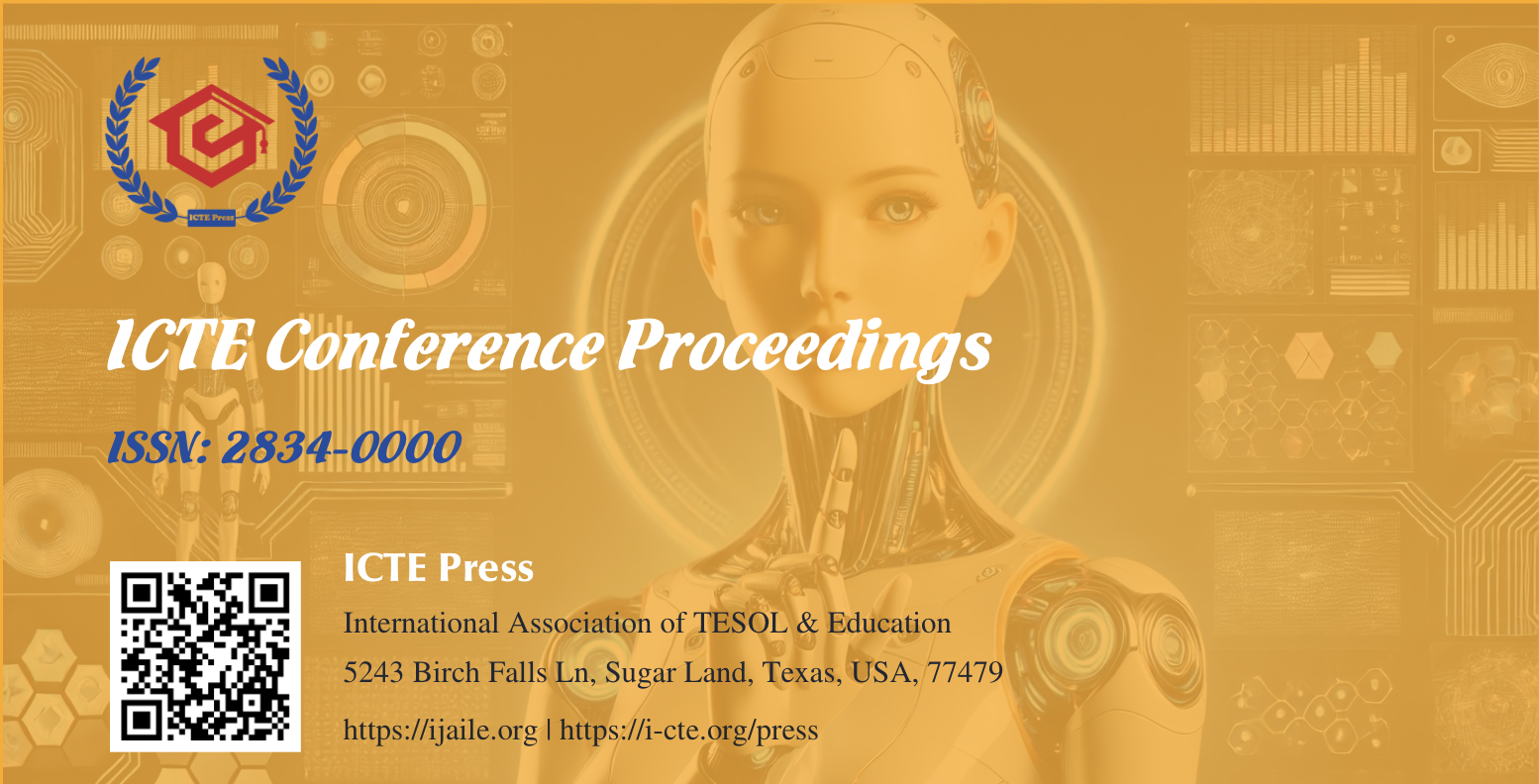An Investigation into The Online Assessment and The Autonomy of Non-English Majored Students in Vinh Long Province
DOI:
https://doi.org/10.54855/ictep.2334Keywords:
online assessment, learner autonomy, online tools, English learning and teachingAbstract
Recently, the COVID-19 pandemic has strongly impacted human life and brought various challenges and difficulties for learning and teaching all over the world. The massive development of information technology has brought solutions to deal with this new phase. Teachers implement online assessments to support learning and teaching English. There are previous studies about the effect of E-learning, but research about online tools such as Liveworksheets or Google Forms were rarely conducted, especially in Vinh Long province. Therefore, during the academic year 2021-2022, the researchers started a study on 120 students who used Liveworksheets and Google Forms as their assessment in class and even their homework during their Basic English course. After using these tools, students completed a survey that reflected their job with those online tools during their semesters. An online questionnaire was used in this study to collect data from 120 students in a university in the Mekong Delta. The current study is designed as descriptive research. In addition, both quantitative and qualitative research methods are used. The results show positive impacts on learner autonomy and learners' listening skills by using Liveworksheets rather than Google Forms. Besides, the study illustrates students' responses that gave both advantages and disadvantages of those tools. These results may be helpful for both lecturers and students to promote themselves in teaching and learning English.
References
Agung, B., Syaefulloh, S., Ridwan, I. M., Mamun, A. M. H., Sumpena, D., & Yulianti Zakiah, Q. (2018). Google Form-Based Learning Assessment. Advances in Social Science, Education and Humanities Research, 253, 529-531.
Amalia, D. (2020). Quizizz Website as an Online Assessment for English Teaching and Learning: Students’ Perspectives. Jo-ELT (Journal of English Language Teaching) Fakultas Pendidikan Bahasa & Seni Prodi Pendidikan Bahasa Inggris IKIP, 7(1), 1-8. https://doi.org/10.33394/joelt.v7i1.2638
Benson, R., & Brack, C. (2010). Online learning and assessment in higher education: A planning guide. Chandos Publishing.
Dörnyei, Z. (2007). Research Methods in Applied Linguistics. Quantitative, Qualitative, and Mixed Methodologies. Oxford: Oxford University Press.
Dulock, H. L. (1993). Research Design: Descriptive Research. Journal of Pediatric Oncology Nursing, 10(4), 154–157. https://doi.org/10.1177/104345429301000406
Fitriyah, I. & Jannah, M. (2021). Online Assessment Effect in EFL Classroom: An Investigation on Students and Teachers’ Perceptions. Indonesian Journal of English Language Teaching and Applied Linguistics, 5(2), 265-284.
Trinh, H. L., Pham, D. L., Phan, V. V., & Nguyen, H. T. (2022). Factors Influencing Freshmen’s Acceptance of Online Learning: A Study at Hanoi University of Industry. International Journal of TESOL & Education, 2(5), 1–13. https://doi.org/10.54855/ijte.22251
Le, H. T. Q., & Nguyen, T. H. (2022). A study on Non-English Major Students’ Learner Autonomy: Difficulties and Solutions. International Journal of TESOL & Education, 2(3), 197–207. https://doi.org/10.54855/ijte.222313
Rahman, Abd. (2018). Building autonomous learners in English as a foreign language (EFL) Classroom. Proceedings of the International Conference on Education in Muslim Society (ICEMS 2017). International Conference on Education in Muslim Society (ICEMS 2017). https://doi.org/10.2991/icems-17.2018.44
Spivey, M. F., & McMillan, J. J. (2014). Classroom versus online assessment. Journal of Education for Business, 89(8), 450–456. https://doi.org/10.1080/08832323.2014.937676
Vagias, W. M. (2006). Likert-type scale response anchors. Clemson International Institute for Tourism & Research Development, Department of Parks, Recreation and Tourism Management. Clemson University, Clemson. http://www.clemson.edu/centers-institutes/tourism/documents/sample-scales.pdf
Downloads
Published
How to Cite
Issue
Section
License
Copyright (c) 2023 Ho Le Thanh Phuong, Doan Ngoc Anh Huy, Dinh Thi Lich

This work is licensed under a Creative Commons Attribution 4.0 International License.
Authors retain copyright and grant the picte the right of first publication with the work simultaneously licensed under a Creative Commons Attribution 4.0 International License that allows others to share the work with an acknowledgment of the work's authorship and initial publication in this journal.
Authors are able to enter into separate, additional contractual arrangements for the non-exclusive distribution of the proceedings' published version of the work (e.g., post it to an institutional repository, in a journal, or publish it in a book), with an acknowledgment of its initial publication in this proceedings.
Authors are permitted and encouraged to post their work online (e.g., in institutional repositories or on their website) prior to and during the submission process.










